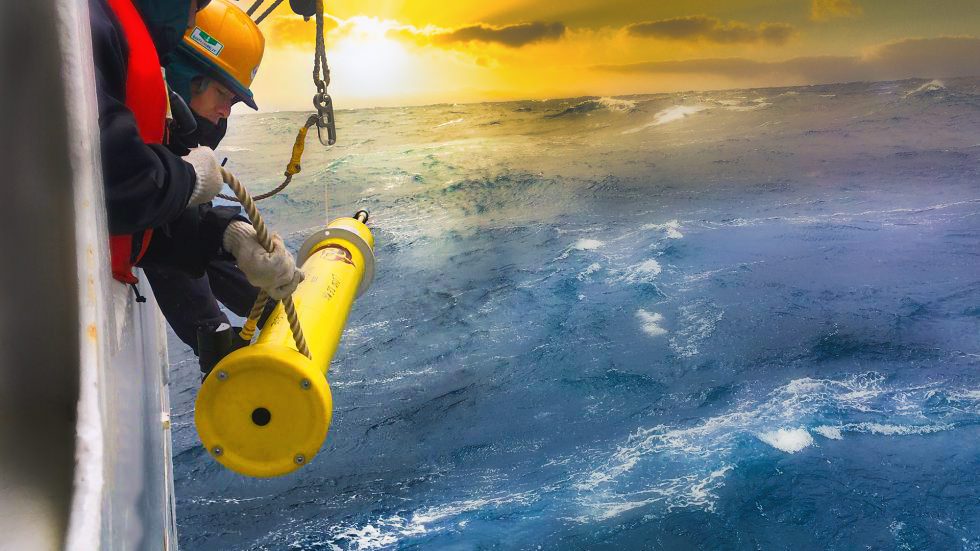Scientists Say The Ocean Is Getting Loud
By Iain Barber (the Conversation) On summer evenings in the 1980s, the residents of a houseboat community in Sausalito, California would often have trouble sleeping. A bizarre and persistent humming...

by Nathan Frandino (Reuters) – After years studying the icy waters of the Southern Ocean with floating robotic monitors, a consortium of oceanographers and other researchers is deploying them across the planet, from the north Pacific to the Indian Ocean.
The project known as the Global Ocean Biogeochemistry Array, or GO-BGC, started in March with the launch of the first of 500 new floating robotic monitors containing computers, hydraulics, batteries and an array of sensors scientists say will relay a more comprehensive picture of the ocean and its health.
Related Book: The World Is Blue: How Our Fate and the Ocean’s Are One by Sylvia A. Earle
“The ocean is extremely important to the climate, to the sustainability of the earth, its supply of food, protein to enormous numbers of people. We don’t monitor it very well,” said Ken Johnson, GO-BGC’s project director and a senior scientist at the Monterey Bay Aquarium Research Institute (MBARI) in Moss Landing, California.
Johnson said the sensors help survey a larger portion of the ocean more consistently than people collecting samples on ships, adding, “The goal is to be able to monitor the health of the ocean in places where people only go once a decade.”
At the MBARI lab, team members have been busy calibrating each of the sensors, which will measure acidity, or pH levels, salinity, temperature, pressure, oxygen, and nitrate.
The measurements will be taken at a depth of 3,280 feet (1,000m), where the float will drift in weaker currents for a little over a week. The float will then descend to 6,500 feet before surfacing and transmitting its data to shore via satellite. The entire trip will take about 10 days.
That data will be made available to research institutions and schools for free, and will help lead to better oceanic modeling, said George Matsumoto, a senior education and research specialist at MBARI.
“Over the years as all the data starts to accumulate, we’re learning more and more about the oceans,” he said.
(Reporting by Nathan Frandino; Editing by Karishma Singh and Gerry Doyle)
This article contains reporting from Reuters, published under license.

Sign up for gCaptain’s newsletter and never miss an update

Subscribe to gCaptain Daily and stay informed with the latest global maritime and offshore news
Essential news coupled with the finest maritime content sourced from across the globe.
Sign Up